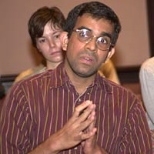MIT faculty, administrators and students explored the moral and ethical implications of military funding for research, MIT's role in wars of the past two centuries and its possible role in the future following a Sept. 9 panel presented by the Program in Science, Technology and Society.
The panel, titled "MIT's Responsibility in a Dangerous World," was moderated by Rosalind H. Williams, the Metcalfe Professor of Writing and director of the Program in Science, Technology and Society (STS).
Panelists were Associate Provost Claude Canizares, the Bruno Rossi Professor of Experimental Physics; Alice Gast, associate provost and vice president for research; and STS graduate students Peter Shulman and Brendan Foley.
Canizares and Gast summarized two major MIT projects--one that is administrative and community-wide, the other involving research.
Canizares described the work of the Committee on the Protection of Human Life and Infrastructure, formed shortly after Sept. 11, 2001, by President Charles M. Vest. Canizares also announced the launch of a new web site, "Homeland and Global Security."
Gast introduced the Institute for Soldier Nanotechnologies, highlighting research to develop materials such as responsive armor, adaptive splints and a recoilless gun. She also discussed MIT's commitment to sustaining its open intellectual environment, noting President Vest's opposition in October 2001 to freezing international students' visas.
"MIT works hard in Washington with policymakers to maintain our welcome to international students," said Gast.
Foley and Shulman, both graduate resident tutors, presented results from a survey of undergraduate students on the effects of the terrorist attacks.
Student suggestions for MIT's future role in the post-Sept. 11 world focused on curricular changes--primarily on adding or requiring courses on the "roots of global discontent" or on moral and ethical implications of research, Shulman and Foley reported.
Robert P. Redwine, dean for undergraduate education and professor of physics, challenged the group to consider housing choices rather than course choices.
"We have a wonderfully diverse student body, but we will have a rather segregated student life as long as we stick with 'comfort zones' in housing," said Redwine. He suggested students consider the wider educational aspects of housing choice.
To be truly welcoming and truly American, commemorative events should include not just Old Glory but the flags of every country of victims of the Sept. 11 terrorist attacks, suggested STS graduate student Kaushik Sunder Rajan--a comment that produced a ripple of sympathetic applause across the roo






